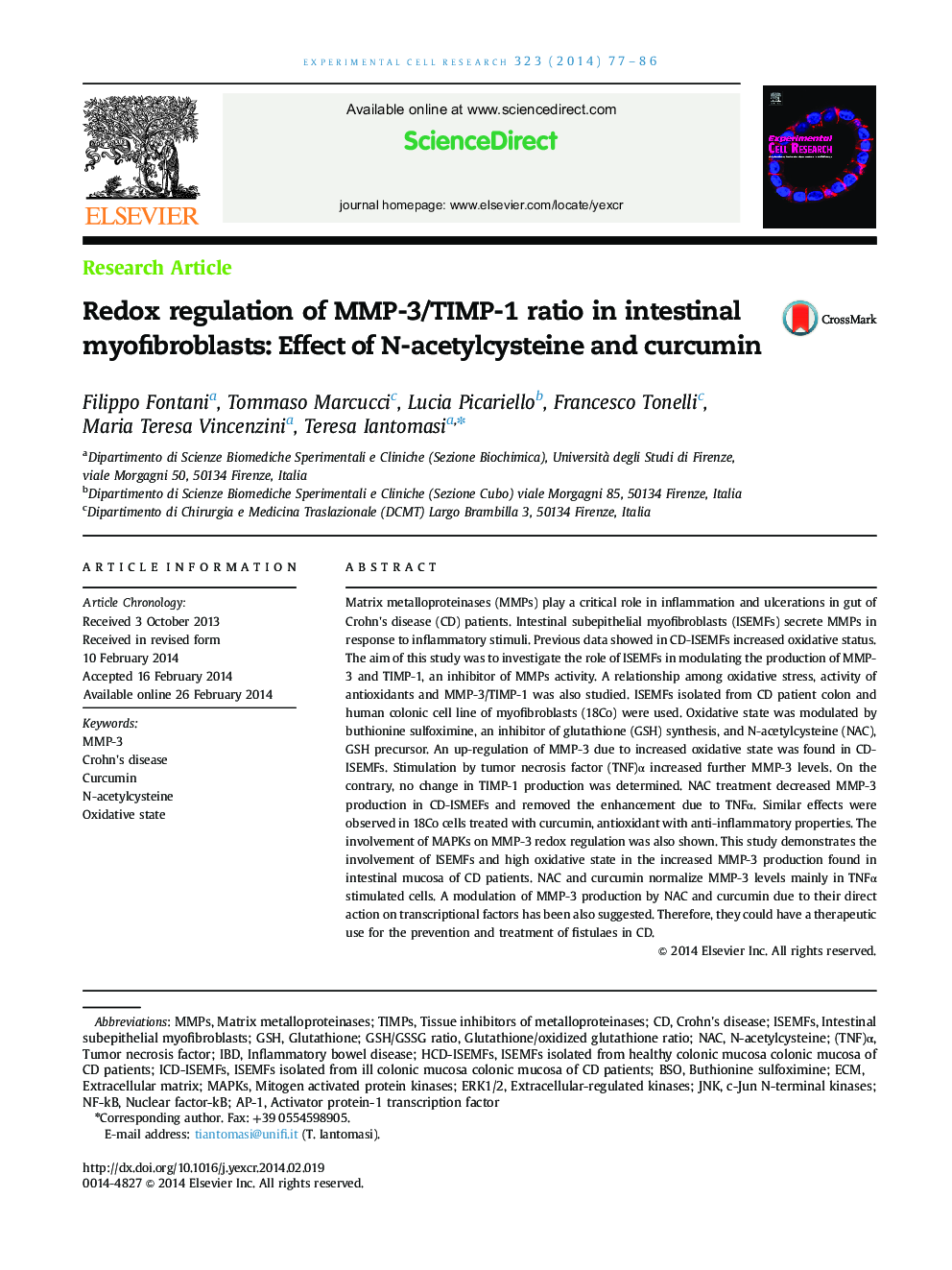| Article ID | Journal | Published Year | Pages | File Type |
|---|---|---|---|---|
| 10904032 | Experimental Cell Research | 2014 | 10 Pages |
Abstract
Matrix metalloproteinases (MMPs) play a critical role in inflammation and ulcerations in gut of Crohn׳s disease (CD) patients. Intestinal subepithelial myofibroblasts (ISEMFs) secrete MMPs in response to inflammatory stimuli. Previous data showed in CD-ISEMFs increased oxidative status. The aim of this study was to investigate the role of ISEMFs in modulating the production of MMP-3 and TIMP-1, an inhibitor of MMPs activity. A relationship among oxidative stress, activity of antioxidants and MMP-3/TIMP-1 was also studied. ISEMFs isolated from CD patient colon and human colonic cell line of myofibroblasts (18Co) were used. Oxidative state was modulated by buthionine sulfoximine, an inhibitor of glutathione (GSH) synthesis, and N-acetylcysteine (NAC), GSH precursor. An up-regulation of MMP-3 due to increased oxidative state was found in CD-ISEMFs. Stimulation by tumor necrosis factor (TNF)α increased further MMP-3 levels. On the contrary, no change in TIMP-1 production was determined. NAC treatment decreased MMP-3 production in CD-ISMEFs and removed the enhancement due to TNFα. Similar effects were observed in 18Co cells treated with curcumin, antioxidant with anti-inflammatory properties. The involvement of MAPKs on MMP-3 redox regulation was also shown. This study demonstrates the involvement of ISEMFs and high oxidative state in the increased MMP-3 production found in intestinal mucosa of CD patients. NAC and curcumin normalize MMP-3 levels mainly in TNFα stimulated cells. A modulation of MMP-3 production by NAC and curcumin due to their direct action on transcriptional factors has been also suggested. Therefore, they could have a therapeutic use for the prevention and treatment of fistulaes in CD.
Keywords
NF-kBExtracellular-regulated kinasesGSH/GSSG ratioMMP-3TIMPsBSOAP-1IBDECMNACGSHMmpsJnkc-Jun N-terminal kinasesERK1/2MAPKsMitogen activated protein kinasesN-acetylcysteinebuthionine sulfoximineCrohn׳s diseaseInflammatory bowel diseaseOxidative statetumor necrosis factorNuclear factor-kBExtracellular matrixMatrix metalloproteinasesTissue inhibitors of metalloproteinasesCurcuminGlutathione
Related Topics
Life Sciences
Biochemistry, Genetics and Molecular Biology
Cancer Research
Authors
Filippo Fontani, Tommaso Marcucci, Lucia Picariello, Francesco Tonelli, Maria Teresa Vincenzini, Teresa Iantomasi,
